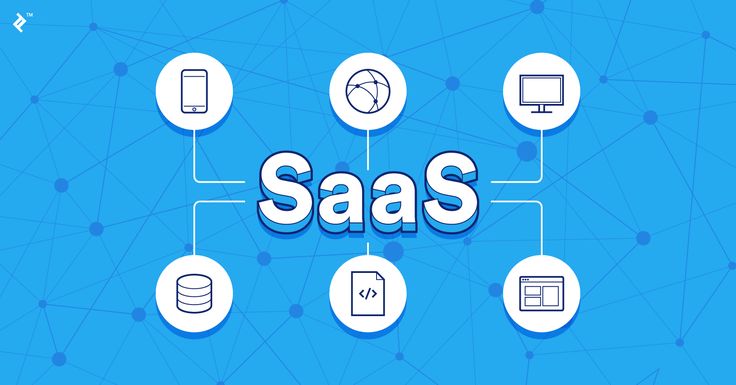Scaling a startup in today’s fast-moving business world is a complex task. Entrepreneurs often face limited resources, increased competition, and the need to avoid technological changes.
SaaS (Software as a Service) platforms offer a strategic advantage by providing cloud-based solutions that simplify business operations.
These platforms are cost-effective, scalable, and provide automation, allowing startups to focus on growth rather than managing software.
As we move into 2025, SaaS tools are more advanced than ever, making them indispensable for businesses looking to scale rapidly and efficiently.
Why SaaS Platforms Are Game-Changers for Startups
For startups, the need for affordable, flexible, and scalable solutions is critical.
SaaS platforms meet these needs by offering subscription-based pricing models, meaning startups only pay for what they use. This eliminates the need for hefty upfront investments in software or hardware.
Furthermore, SaaS solutions are hosted in the cloud, which means they are accessible from anywhere, ensuring flexibility and remote work capabilities.
These tools are continuously updated by the providers, ensuring that startups always have access to the latest features without additional costs.
Moreover, SaaS platforms are designed to scale with your business. Whether you have a small team or you’re expanding rapidly, SaaS platforms can grow with you, adding features or increasing capacity without disrupting your operations.
Automation features also play a crucial role, allowing startups to reduce manual processes and increase efficiency.
For example, a marketing automation platform can manage email campaigns, while project management software automates task assignments, helping teams work more effectively.
Table of Contents
The Best Categories of SaaS Platforms for Startups in 2025
Startups require a diverse set of SaaS platforms to manage different aspects of their business. Below are the key categories that can help startups scale efficiently:
Collaboration and Communication Tools
Effective communication is at the core of any successful startup. With remote work becoming increasingly common, platforms like Slack and Microsoft Teams provide a centralized hub for messaging, file sharing, and video meetings.
These tools ensure smooth collaboration, no matter where your team is located.
Project Management Tools
Startups need to keep projects on track, and tools like Trello, Asana, and Monday.com are ideal for organizing tasks and managing workflows. These platforms allow teams to assign tasks, set deadlines, and monitor progress in real-time.
This visibility helps ensure that projects are completed on time and within budget.
Customer Relationship Management (CRM)
Managing customer relationships is crucial for any growing business. CRM platforms like HubSpot, Salesforce, and Zoho CRM help startups track leads, manage contacts, and automate follow-up tasks.
These tools centralize customer data, making it easier for sales and customer service teams to deliver personalized experiences.
Accounting and Finance Tools
Financial management is often a challenge for startups, but SaaS accounting platforms like QuickBooks, Xero, and FreshBooks simplify the process.
These tools provide real-time insights into cash flow, automate invoicing, and ensure compliance with tax laws, allowing entrepreneurs to focus on growing their businesses.
Marketing Automation
Marketing automation platforms like Mailchimp and ActiveCampaign help startups create and execute targeted email campaigns.
These platforms allow for the automation of email sends, segmentation of customer lists, and performance tracking. With email marketing playing a crucial role in lead generation and customer retention, these tools can be invaluable for startups.
Analytics and Reporting Tools
Data-driven decision-making is essential for growth, and tools like Google Analytics, Tableau, and Mixpanel provide startups with powerful insights into customer behavior, website traffic, and business performance.
With these tools, startups can optimize their marketing efforts, improve customer engagement, and make informed business decisions.

How SaaS Platforms Help Startups Scale Efficiently
The impact of SaaS platforms goes beyond just automating tasks. These tools are integral to improving operational efficiency, driving innovation, and maintaining flexibility as businesses scale.
Here’s how they help startups:
- Cost Efficiency: SaaS platforms often operate on a subscription model, allowing startups to access enterprise-level features at a fraction of the cost of traditional software. This model is ideal for startups that need to conserve cash flow in the early stages.
- Scalability: As startups grow, so do their needs. SaaS platforms are designed to scale with businesses, adding features and capacity as needed.
Whether it’s increasing storage, adding team members, or upgrading the functionality of the platform, SaaS tools allow startups to expand without disruption.
- Automation: Many SaaS platforms come with built-in automation features that help startups save time and increase productivity.
For example, project management tools can automatically assign tasks to team members based on predefined rules, while marketing platforms can send personalized emails to leads based on their behavior.
- Integration Capabilities: SaaS platforms are designed to integrate easily with other software solutions. This seamless integration allows startups to create a connected ecosystem of tools that work together, reducing data silos and improving overall business efficiency.

Factors to Consider When Choosing a SaaS Platform
Selecting the right SaaS platform can be challenging, especially with so many options available. Here are a few key factors startups should consider:
- Customization: Ensure that the platform offers flexibility to meet the unique needs of your business. Customizable workflows, features, and dashboards allow startups to tailor the platform to their specific goals.
- Ease of Use: The platform should be intuitive and easy to navigate. Startups often have small teams, and the learning curve should be minimal to ensure quick adoption.
- Support and Resources: Good customer support is essential, especially when issues arise. Look for platforms that offer robust customer service, including live chat, email support, and comprehensive knowledge bases.
- Security: Since startups deal with sensitive customer data, security should be a top priority when choosing a SaaS platform. Look for platforms that offer encryption, regular updates, and compliance with data protection laws like GDPR.
- Pricing: SaaS platforms usually offer tiered pricing based on features and usage. Startups should choose a plan that fits their budget while offering room for growth.
Many platforms offer free trials or free versions with basic functionality, which can be a good starting point for early-stage businesses.

Future Trends in SaaS for Startups
As the SaaS industry continues to evolve, there are several key trends to watch for in 2025:
- AI and Automation: Artificial intelligence is becoming more integrated into SaaS platforms, helping startups automate even more processes. AI-powered analytics tools, chatbots, and virtual assistants are becoming increasingly common in SaaS offerings.
- Vertical SaaS: In addition to general-purpose tools, vertical SaaS platforms are emerging to serve the specific needs of industries such as healthcare, real estate, and education. These industry-specific solutions are designed to help startups within these sectors address their unique challenges.
- No-Code/Low-Code Tools: SaaS platforms with no-code or low-code capabilities are becoming more popular. These tools allow startups to build custom applications and workflows without needing to know how to code, empowering non-technical team members to create solutions on their own.
- Mobile-First SaaS Platforms: As mobile usage continues to rise, SaaS platforms are becoming more mobile-friendly, offering apps and mobile-optimized interfaces that allow startups to manage their business on the go.

Conclusion
SaaS platforms are essential for startups looking to scale in 2025. With their cost-effective, scalable, and automated features, these tools enable startups to streamline operations and focus on growth.
Whether it’s improving team collaboration, managing customer relationships, or analyzing data, SaaS platforms offer solutions that can propel startups forward.
As SaaS continues to evolve, startups should stay informed about the latest trends and choose the platforms that best align with their business goals.
By adopting the right SaaS tools, startups can increase efficiency, enhance customer experiences, and achieve sustained growth.
FAQs
What are SaaS platforms?
SaaS platforms are cloud-based software solutions delivered via the internet. They allow businesses to access software without the need for physical installations or on-premise infrastructure.
Why should startups use SaaS tools?
SaaS tools are cost-effective, scalable, and easy to implement. They provide startups with the flexibility to grow without incurring large upfront costs or infrastructure investments.
Which SaaS platform is best for project management?
Tools like Trello, Monday.com, and Asana are widely regarded as some of the best for project management, offering easy-to-use task boards, collaboration features, and real-time updates.
Are SaaS platforms secure for business use?
Yes, most reputable SaaS platforms implement strong security measures, including data encryption, multi-factor authentication, and regular software updates to ensure the safety of your data.
How do I choose the right SaaS platform for my startup?
When choosing a SaaS platform, consider factors like ease of use, customization options, pricing, customer support, and security features. Start with a free trial to see if the platform meets your business needs before committing.

Leave a Reply